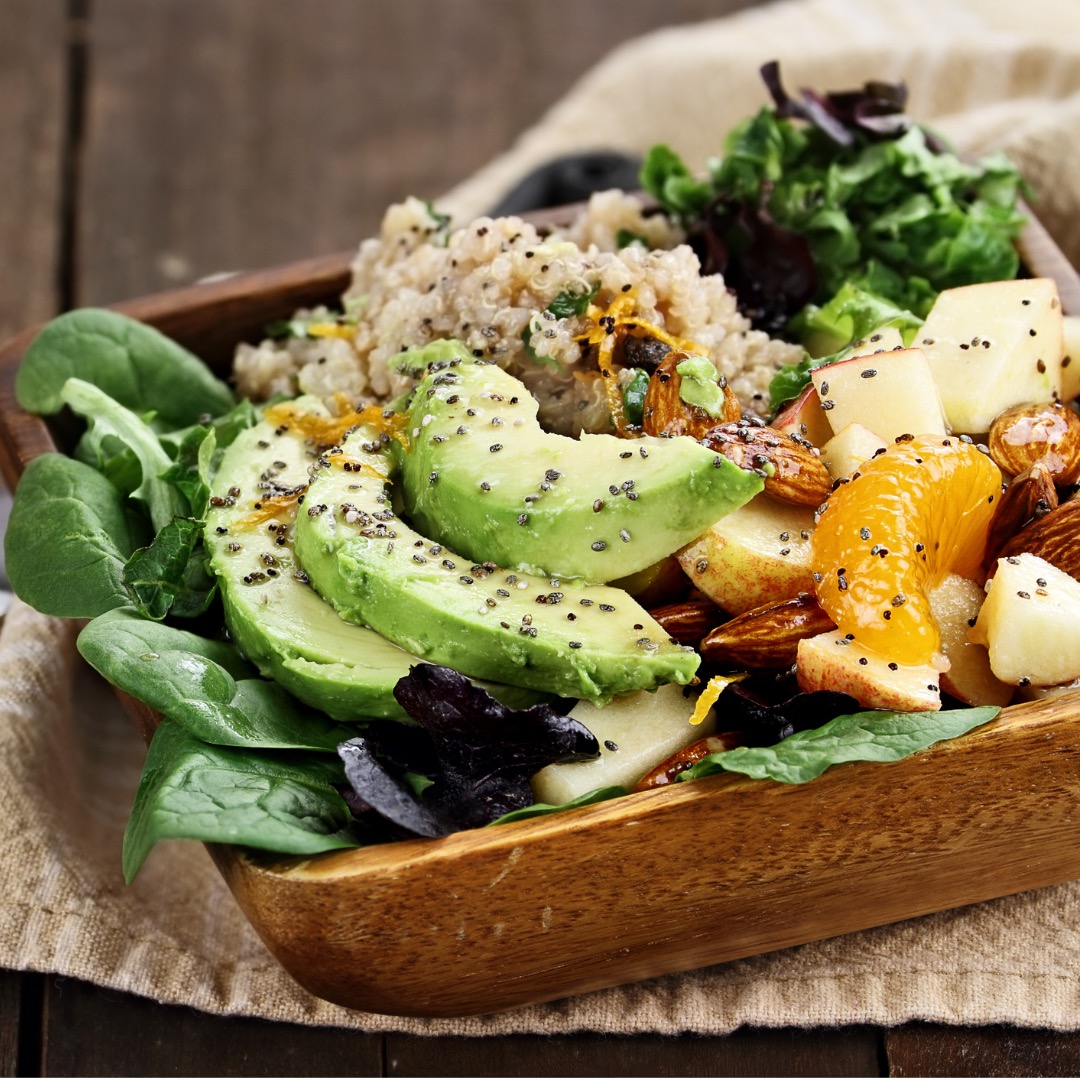My Plant-Based Journey
About 15 or so years ago, I was driving along I-81N coming home from a trip. As I was driving though Virginia, to the right of me, was a truck jammed full of chickens with their little beaks poking out of the slats of the truck – trying to eek out whatever breath they could take. They were all crowded together on top of one another struggling to breathe. I looked into their faces as I was passing and thought “I know where you’re going…..” It was then that I decided I couldn’t eat anything that had to be killed. I didn’t want any part of a system that contributed to that kind of cruelty. It was that day I became a vegetarian and have been ever since. In fact now – I’m about 90-95% vegan. The non-vegan things I eat are goat cheese, yogurt (very occasionally) eggs (very occasionally) and butter (very occasionally). I also eat honey where some consider that to not be part of a vegan diet as well. You could say my diet is “plant-based” – where the majority of foods I consume come from plants. And yes isn’t chocolate technically plant-based????
I started my “plant-based journey” because of ethical reasons. Little did I realize the health benefits of also doing so. That came later. Actually – even though I ended up with stage 4 lymphoma (that looking back at I was walking around with for a long time) because I turned my unhealthy lifestyle into a healthy one – I probably held off my lymphoma from exploding for many years. In retrospect, in looking back at my weird symptoms and then blood work, I was probably walking around with lymphoma since the year 2000 at least. I was diagnosed in 2015.
My doctors also say that my healthy diet has helped in the ability to withstand the chemotherapy treatments I needed and helped in the recovery from those treatments and the mitigation of side effects. Quite possibly – it is helping in preventing a recurrence in me as well but for this we will have to see….
There have been numerous studies illustrating the benefits of a plant-based diet. And not just plant-based (because technically potato chips are plant-based) but it’s really more of a “whole food plant-based” diet (WFPB) – where what you eat is processed as little as possible if at all. You are eating the food as close to how nature provided it. What are the benefits of a WFPB diet? Here are some that are clinically proven:
– Decreases inflammation (the cause in whole or in part of many chronic diseases).
– Balances lipid levels (LDL, HDL, Triglycerides).
– Lowers blood sugar.
– Normalizes weight.
– Lose visceral fat.
– Increases fiber intake to keep things moving.
– Provides the micronutrients our bodies need to biochemically function properly.
– Because of the above – reduces the risk of developing cancer, heart disease and diabetes.
Whole foods plant-based diets can be vegan, vegetarian or even carnivorous. The point is that food derived from plants, in their form closest to their natural state, should make up the vast majority of your plate. Animal products, if consumed, would almost be a condiment – a very small amount to accompany the rest. Whatever is consumed should offer the highest quality nutrition and be processed as little as possible. Again – potato chips are plant-based and usually vegan but offer very little in the way of positive nutrition.
Some food groups to consider as part of this diet include: beans, legumes, nuts and nut butters, seeds, vegetables, whole grains and whole fruits (consume the whole fruit as opposed to just the juice to limit the blood sugar spike and benefit from the fiber). It may not seem this way at first but within these food groups are numerous options so there can be plenty of choices for the person who is changing over to a healthier way of eating.
Once you explore this way of eating you will be amazed at the variety of recipes available. Wonderful soups and stews, “pasta” dishes, even delicious desserts (chocolate avocado cream pie anyone?) Many cuisines from around the world are based around a whole food plant-based way of eating and have some of the most wonderful dishes – Indian, Mediterranean/Middle Eastern, many regions in Africa, Japanese, Chinese to name a few. They use various types of spices and herbs to flavor their dishes, many of which we never think to use until exploring these recipes.
Speaking of cuisines around the world – the people who live in the Blue Zones – the locations around the world where people live the longest and healthiest all consume whole food plant- based diets. I’d like to do what they do!
The word “diet” should really be changed to “lifestyle”. “Diet” almost has a negative sound to it – one that is “punishing” and “restrictive”. A whole food plant-based way of eating can become part of your healthier lifestyle. Start with a day or two a week of eating this way and work from there. Once you adapt this way of eating – you will love how you feel after a few weeks. Your healthcare practitioners will love your test results. And the animals you save and the planet will also thank you. Why not give a whole foods plant-based lifestyle a try?
For more information on improving your health by eating a whole food plant based (WFPB) diet you can start here:
https://theconversation.com/confused-about-what-to-eat-science-can-help-118745


